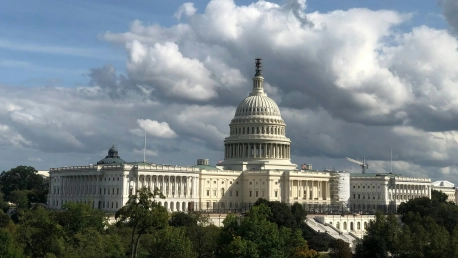The US Senate has taken a crucial step by passing a significant $460 billion spending bill, averting a potential partial government shutdown by ensuring critical funding across various sectors. This bipartisan action secures financial backing for sectors such as agriculture, transportation, housing, energy, and veterans’ affairs until the end of the fiscal year on September 30. The timely arrival of this measure safeguarded the necessary monetary resources and exemplified the ability of Congress to come together, despite frequent partisan divisions, to support essential programs. Moreover, this budgetary achievement lays the groundwork for future fiscal negotiations, emphasizing the strategic importance of interparty cooperation in Congress for the benefit of diverse aspects of the nation’s governance and services. This legislative success grants not just immediate economic support but also signals progress for subsequent budget conversations in a legislative arena that is often marked by ideological divides.
Congressional Cooperation Amid Challenges
Despite initial resistance, especially from conservatives seeking amendments on immigration and other policies, the Senate’s endorsement of the bill reflects a growing willingness to seek common ground. While the House had earlier cleared the legislation, the Senate’s affirmation was vital for it to take effect. Senior Democrats and Republicans alike have underscored the importance of this achievement as a testament to bipartisan cooperation, essential for navigating the intricate terrain of federal budgeting.
The Road Ahead for Budget Approvals
As the March 22 deadline swiftly approaches, the pressure is on for Congress to finalize key details of the $1.66 trillion federal budget. This considerable sum is set to cover vital sectors including the military, healthcare, and homeland security. The route to achieving a full-year financial plan has been punctuated with numerous temporary fixes and postponed more than usual, indicating a struggle to reach a consensus. News sources underline the significance of this action, considering it a sign of potential headway being made in an often gridlocked Congress. With President Joe Biden’s approval expected, the current proposal signifies a positive step towards solidifying a broader fiscal strategy. This development reveals how a prolonged process, fraught with complications, still holds the capacity for progress and eventual completion, reflecting the intricate processes of democratic governance.









